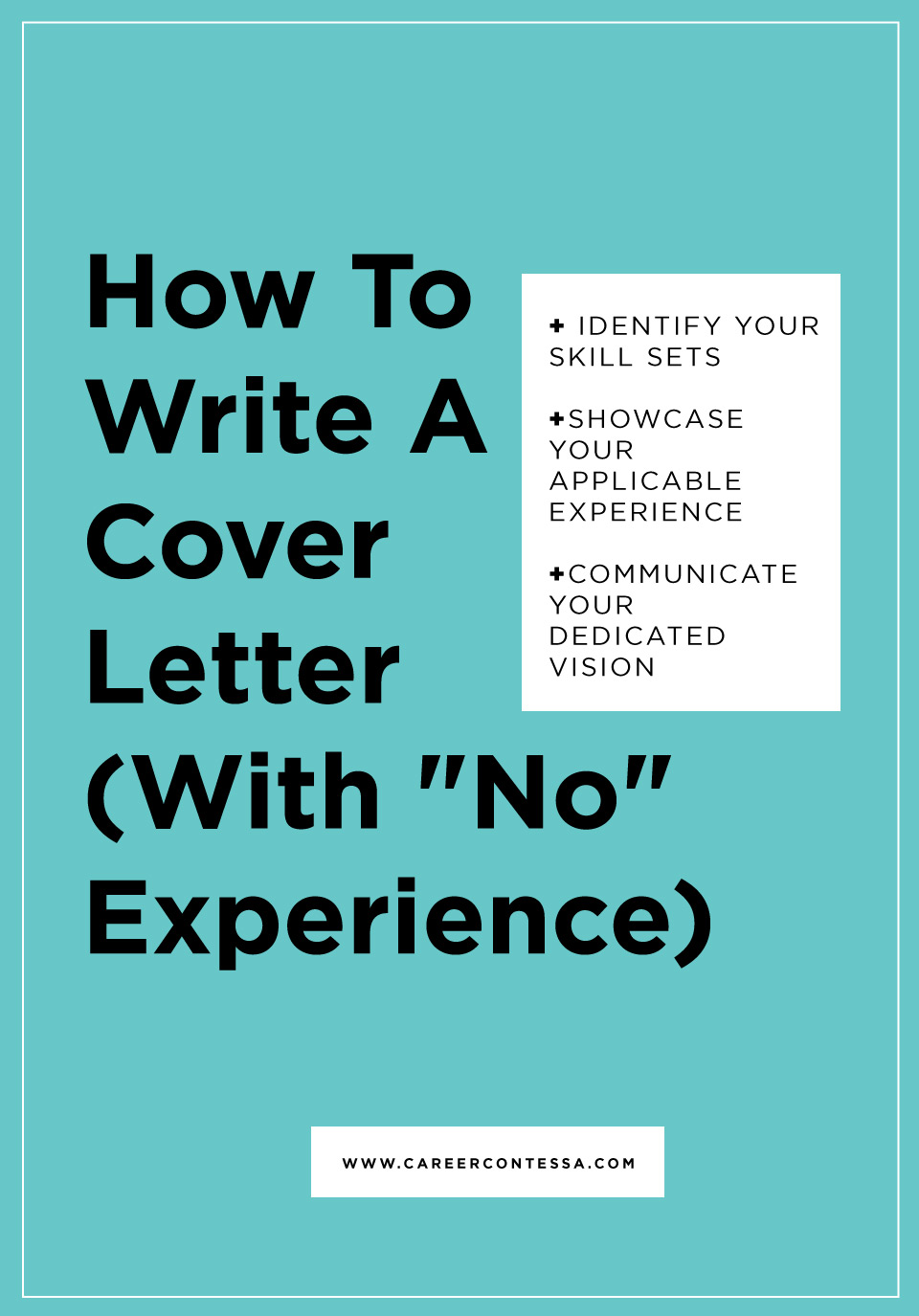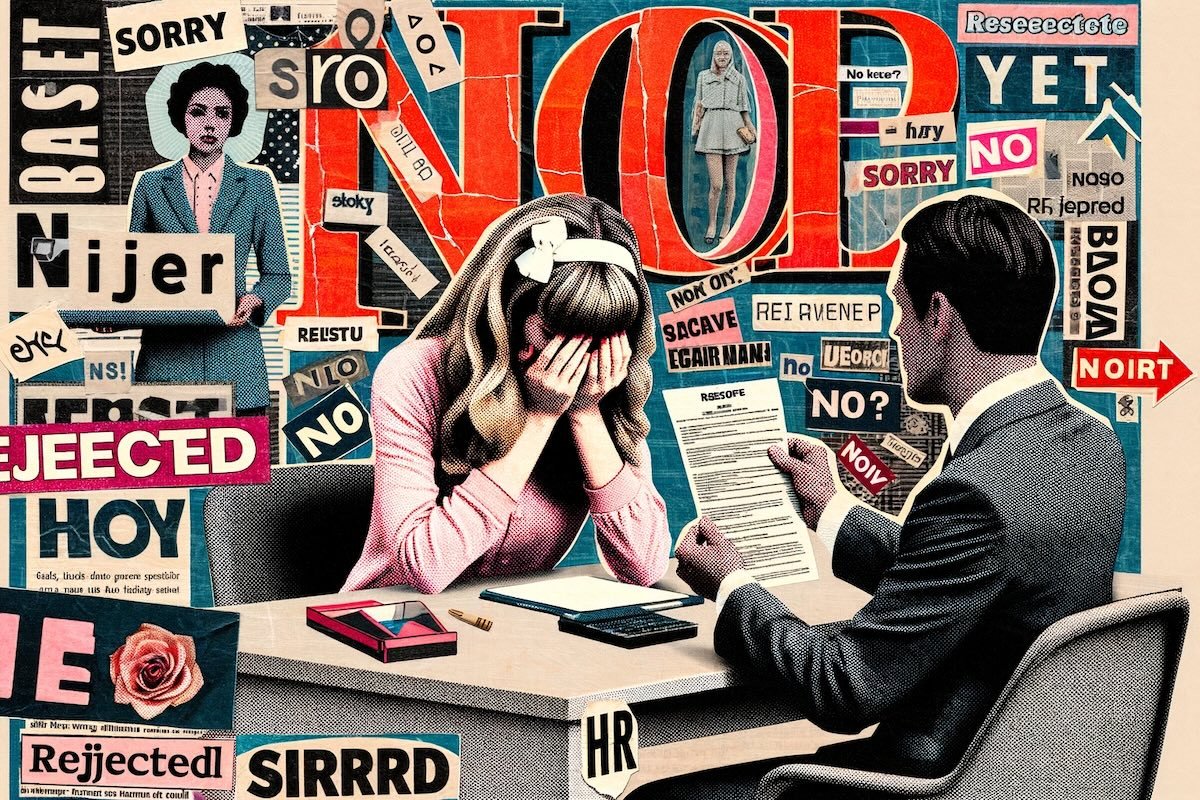First of all, let’s ditch the narrative that you have no experience. It serves nobody.
By the time you’re looking for your first job that
requires a cover letter, you’re likely at least 18 years old. In 18 years, you have acquired applicable experience—even if you’ve never held a “job” job before. Or maybe you have been in the workforce for decades, but you are making a career transition.
In this article, we are going to unearth and explore the experience that you definitely do have—and explain how to apply it to your new potential role.
Your cover letter is important—even more so in the event of limited experience. While
a resume is more of a black and white overview of education and experience,
a cover letter allows a job applicant to editorialize their own experience. Take advantage of this opportunity—every time. Seriously, even if it isn't required.
When an applicant lacks "traditional" work experience, there are still ways to highlight the relevant skills needed. Entry-level cover letters require creativity, enthusiasm, and confidence.
A good rule of thumb is to always write a cover letter, especially when you have limited experience. If you provide a light resume, an employer might overlook you. However, when coupled with a cover letter that explains your experience (or lack thereof) and illustrates your sparkling personality, you gain a real leg up.
Identify Your Skill Sets
Some skills are inborn and others are developed throughout your life. Increasingly, employers are looking for employees with a set of hard skills and
soft skills. It’s not enough to list a set of skills, especially in a cover letter. Rather, the cover letter is a great place to expand on how you access and utilize your skills.
If you've never held a job in this particular role before, you might want to focus on showcasing your soft skills. Some soft skills you might include in your cover letter could be:
- Listening
- Empathy
- Communication
- Decision-making
- Time management
- Interpersonal skills
- Leadership
Guess what? You probably have a good arsenal of hard skills, too. If there's a particular software suite you have mastered, explain your experience. Perhaps you have an expansive knowledge of the Adobe Creative Suite or you are a master of Excel Spreadsheets (we're jealous!). Make sure to explain what you have been able to create, organize, or implement with these particular hard skills.
Identify + Showcase Your Applicable Experience
You have experience. Whether it’s leading an initiative to clean local parks,
starting a successful book club with your friends, or even organizing a family trip to Hawaii, your personal life experiences can be very applicable to the job at hand.
Your skills and experience may not be so obvious to you. As people—and as women, especially—we tend to skip over our achievements without really celebrating them. As such, when we are scouring our memories for past accomplishments, we might draw a blank. Here's a somewhat hacky two-step process to figure out what experience you have—and how to include it.
- Look at other professional profiles in your field: Find a few professionals in your desired field—maybe someone who currently holds a position you'd like. Pore over their experience. You might be surprised by how many commonalities you find.
- Ask your friends, coworkers, or classmates: Maybe even ask your mom. Seriously! If you are really struggling with coming up with your strengths and experience, ask around. Ask a former coworker, a classmate, your close friends, or even a former professor. They will be able to give you honest input on your applicable experience and your strengths. Sometimes, an outside look in is better than the other way around.
Once you've identified your applicable experience, go to town. Recruiters and hiring managers have to read dozens of boring, standard
resumes. Make sure yours stands apart with your creativity and your unique look at your personal experience.
Communicate Your Dedicated Vision
If you’re applying for an entry-level position with limited experience, by this point you will have already laid out the skill sets and the applicable experience necessary. From here, you can really
dazzle your prospective employer by envisioning your future within the company.
While you don’t want to come in guns blazing—by laying out a detailed five-year plan in which you steal your hiring manager’s job—it’s good to show a thoughtful vision.
Research the company to which you are applying. Dream up the impact you would make within this role.
If it’s a small startup where you’re applying for an administrative role, you might lay out plans to implement organizational systems and express your interest in learning more about
project management in the event of the company’s expansion. Make sure to balance this approach. A hiring manager could be deterred by someone intending to immediately climb the ladder.
Take your cues from the
initial job posting. If it includes phrases like “rapidly-growing” or “grow with us,” they might be looking for an individual who is looking to advance their skill sets and career in-house. There's something very attractive about an employee who is passionate about learning and growing within the company.
Another approach you could take is creating a 30-60-90 day plan for your first few months on the job. This will show a hiring manager that, despite any experience gaps, you understand the intricacies of the role and you have already imagined improvements you can make.
How to Structure Your Cover Letter
Now that you know the content of your cover letter, let's organize it!
We have plenty of cover letter templates and examples, but you might not even need them. Your cover letter doesn't have to be a three-page journey into every internship you've held, every passion you have, and every experience you've navigated. In fact,
a short cover letter can serve you just fine.
Here's a sample cover letter structure—and what each section should include.
- Greeting or Salutation
- Three Paragraphs (Opening Paragraph, Second Paragraph, and a Closing Paragraph)
- A Killer Closing Line
- A Sign-Off With Your Name (and maybe a link to your LinkedIn profile?)
Greeting [HIRING MANAGER'S NAME]
First Paragraph: In your opening paragraph, insert 2-3 lines introducing yourself, your skill sets, your qualifications, and your intent. Insert a tidbit about the company that shows you've done your research.
Second Paragraph: Insert 2-3 lines that showcase your applicable experience. For example, instead of claiming your great communication skills, detail a time when they came into play with a successful outcome. Use this paragraph to bring your relevant experience to life.
Final Paragraph: Dazzle by envisioning yourself in the role. What excites you about it? What would you most be looking forward to achieving? Use your final line to really bring it all home.












